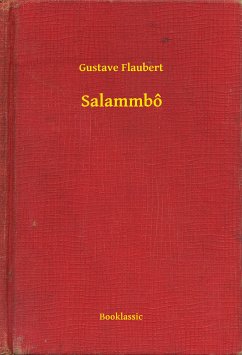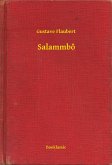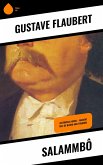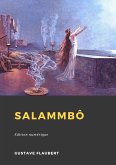An historical novel that interweaves historical and fictional characters. The action takes place immediately before and during the Mercenary Revolt against Carthage in the third century BC. This book, which Flaubert researched painstakingly, is largely an exercise in sensuous and violent exoticism. The Carthaginian costumes described therein even left traces on the fashions of the time. Nevertheless, in spite of its classic status in France, it is practically unknown today among English-speakers.
Dieser Download kann aus rechtlichen Gründen nur mit Rechnungsadresse in A, B, BG, CY, CZ, D, DK, EW, E, FIN, F, GR, H, IRL, I, LT, L, LR, M, NL, PL, P, R, S, SLO, SK ausgeliefert werden.









